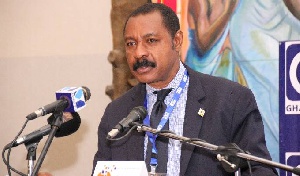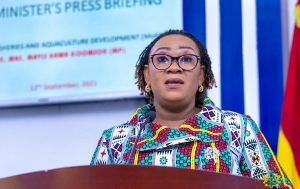CEO of the Private Enterprise Federation (PEF) Nana Osei Bonsu has supported the concession arrangement that will allow for private sector participation in operations of the ECG.
In an interview with the B&FT, Nana Osei Bonsu argued that under terms of the Millennium Challenge Compact, once the ECG is handed over to a private firm for the stated period of time, other private entities can enter the distribution market and bring about competition.
“Under Compact II, ECG will not be privatised. All that it is going to happen is ECG’s mandate to distribute power will now be challenged by private sector businesses which can also be empowered to deliver. This way, competition and efficiency will be brought into power distribution.
“And that is what compact II is all about. It will not privatise ECG. It will provide a room for private businesses to do what ECG is doing. And wherever there is competition there is efficiency, so the private sector is going to benefit because this will give them a choice,” Nana Osei Bonsu said.
He further dismissed concerns by some members of the public that the concession arrangement will make power more expensive than usual, urging the private sector to take advantage of it.
“Why is it going to make power more expensive when there is competition and efficiency? It is because of the inefficiency we are experiencing and the burdens of cost that we pay too much for power. So this time we are not going to rely so much on ECG because there will be other players. So I don’t foresee how it can be worse than what we have. It is rather going to get better. It is a benevolent intervention from the American government to us, so we should take advantage of it,” he said.
He however called on the Public Utilities Regulatory Commission (PURC) to conduct a thorough investigation and analysis into the cause of recent unusual amounts that businesses have been paying for power in the country.
“There must be a thorough analysis of what the price structure is. The business sector will pay its fair share for power at the right price; but if there are excesses we cannot afford to pay for waste. So we have to analyse to see where the increases are coming from and what is causing them. There is something wrong, and it must be analysed so that we can arrive at a consistent angle where we will know how much we are paying for power,” Nana Osei Bonsu said.
Meanwhile, Managing Director of ECG Robert Dwamena has jumped to the defence of the company’s new billing system -- stating that there are no errors in the software, hence the public must have confidence in the system.
“Since inception of the Commercial Management System (CMS) in 2015, ECG has issued about 8.5 million bills to its customers; and out of this only about 7,823 had billing anomalies. Out of this total [7,823], 4,050 are yet to be resolved. We have resolved above 3,000 and so we are giving the assurance to all our customers that we are hopeful of resolving the rest by end of June.
“I must say that all issues concerning application of the software have been resolved, and it is important for me to say we have no problems with the software… We therefore want to assure our customers to have confidence in our billing systems,” Mr. Dwamena said in a press release.
Business News of Tuesday, 14 June 2016
Source: B&FT













